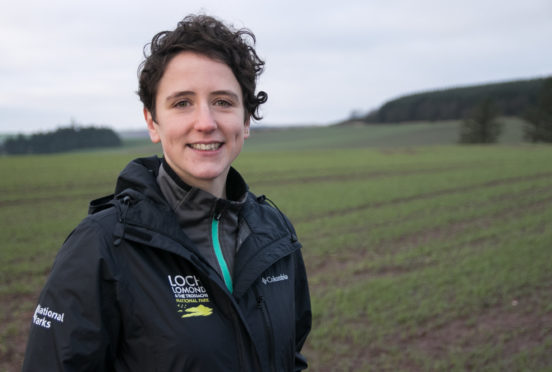The First Minister has declared a global climate emergency. The evidence is irrefutable and the science is compelling. People are clear, they expect action and the world needs to act now, not least for future generations.
We are leading this response. This was made clear when we acted immediately on the advice of the Committee on Climate Change by lodging amendments to our Climate Change Bill to set a 2045 target for net zero emissions.
Just last week another warning was issued about the damage humans are causing to our natural environment – this time in relation to global biodiversity. But there is nothing to be gained from playing a blame game, nor from singling out any one sector.
So I am equally clear, that farming should not be held up as the problem. It is part of the solution.
Farming is often singled out as a climate offender. This is often done by those who don’t fully understand or appreciate the importance of farming to our rural communities or the work our farmers do to protect our environment. I say this not to minimise the need for reform within the agricultural sector, but to highlight the need for the sector to be better recognised for what it is already doing.
Agriculture has a positive story to tell and will be vital as we look for solutions for the future. We need to acknowledge that our farmers and crofters already contribute a lot to emissions reduction through forestry, land use, and electricity generation. I firmly believe that while steps are rightly taken to reduce emissions from agriculture, it should not be done in a manner that simply exports the problem abroad.
That being said, it is more vital than ever that all our farmers and crofters embrace and move towards a low-carbon, environmentally sustainable future. We want Scotland to continue to be a world-class producer of high-quality food – and to produce it sustainably, profitably and efficiently. We will continue to work with our agricultural and scientific communities to achieve this.
This year alone I have announced the establishment of our Young Farmer Climate Change Champions, tasked with championing cultural and behavioural changes; first phase research into the feasibility of a national nitrogen target; and only this month I was in Angus to announce the formation of our Farming For A Better Climate Regenerative Soil Agriculture group – a farmer-led initiative to trail and develop ideas on-farm, which could provide practical, innovative solutions to help climate change mitigation.
These new initiatives are supporting our longer-term work. The Farm Advisory Service continues to provide information and resources aimed at increasing the profitability and sustainability of farms and crofts, including the provision of free carbon audits. The Beef Efficiency Scheme is working to improve the efficiency of our national suckler herd, the monitor farm programme that fosters knowledge transfer, and our support for agri-environment schemes through our Rural Development Programme.
Every sector needs to embrace transformative change to overcome this challenge and I am confident our farmers will rise to the challenge and lead the way. It won’t be easy and I appreciate that no two farms are the same, but if everyone plays their part, the difference could be significant.
We have declared a global climate emergency and now we must act as one to safeguard our planet for future generations.
- Mairi Gougeon is Rural Affairs Minister in Scotland
